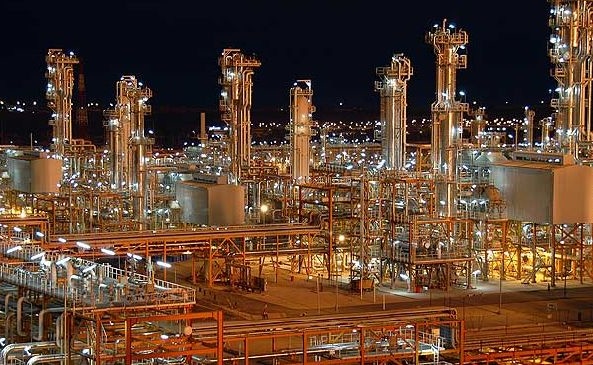Your Tehran Friday Prayer Summary
The Ahmadinejad Government was notable for its declarations that all is well with Iran’s energy sector, despite the halving of oil exports since the start of 2012 and problems with development and investment in oil and gas production.
And the new Rouhani Government has wasted no time picking up the theme. On Thursday, Oil Minister Bijan Namdar-Zanganeh visited the troubled South Pars gas field, one of the largest in the world, and promised:
“We have special focus on commissioning phases 12, 15, 16, 17 and 18 of South Pars, and we will utilize all available equipment and capacities to bring these phases on stream as soon as possible.”
South Pars, located in the Persian Gulf between Iran and Qatar, has been beset by delays in production and an almost-complete withdrawal of foreign investment since 2010.
Despite the setbacks, then-Oil Minister Rostam Qasemi declared in July that all 28 phases of the gas field will be on stream by 2015.
There has been a twist in the new Oil Minister’s rhetoric. While assuring that all will be well, Zanganeh has acknowledged the difficulties faced by Iran. He said earlier this week that the Islamic Republic must return its oil production to 4 million barrels per day as soon as possible.
Iran’s output has fallen to 2.6 mbpd, its lowest level since the 1980s.
Latest Updates, From Top to Bottom
Your Tehran Friday Prayer Summary
Ayatollah Emami Kashani took the podium in Tehran today and called on Iranians to support the Government as it dealt with economic, political, cultural, and moral problems.
The cleric also noted there were killings and violence in Lebanon, Syria, and Egypt.
That was pretty much it.
Foreign Affairs, Syria Edition: MP Claims Wednesday’s Attacks Orchestrated by Insurgents
Hojjatollah Soori, a member of the National Security and Foreign Policy Committee, has declared that Wednesday’s chemical attack was not committed by the Assad regime — but, rather, by insurgents seeking to undermine the Syrian government.
Soori said that “Syria terrorists drew up the scenario of a chemical attack on Damascus suburbs to deal a blow to Assad.”
The attacks, according to Soori, were designed to foster antagonism towards the regime in the international community, downplay the Syrian military’s “achievements”, and distort the realities of the conflict on the ground.
For a more detailed analysis of Wednesday’s attacks see Joanna Paraszczuk’s 4 Points On A Chemical Weapons Attack & What Happens Now.
All will be Well: First Indian Oil Purchase of the Year
The major Indian oil company, Mangalore Refinery & Petrochemicals Ltd. (MRPL), made its first purchase of Iranian crude since April.
The delivery received on 17 August was approximately 85,000 metric tons; the company’s Managing Director, P.P. Upadhya, said “This is the first cargo we’ve got from Iran this financial year and we’ll see how many more we can import in the rest of the year.”
Mehr News offered a cautionary take on the news, noting that while India imported 7.2% of its crude last year, that figure was down from 11% the previous year. It also acknowledged that Iran is now the sixth largest oil producer in the Organization of Petroleum Exporting Countries — down from second last year.
The downturn in Indian purchases of Iranian oil are in part due to the problems facing Indian companies finding insurance due to the international sanctions against Iran. The Indian government is preparing to resolve this by providing a $314 million insurance fund to cover future imports.
India’s third largest state-refiner, Hindustan Petroleum Corp. (HPCL), stated that it has not made any purchases from Iran having halted imports because of the insurance issue.
Last financial year (ending 31 March), HPCL bought 2.2 million tons of crude — this year it has yet to buy any of the 1 million tons it originally planned.

